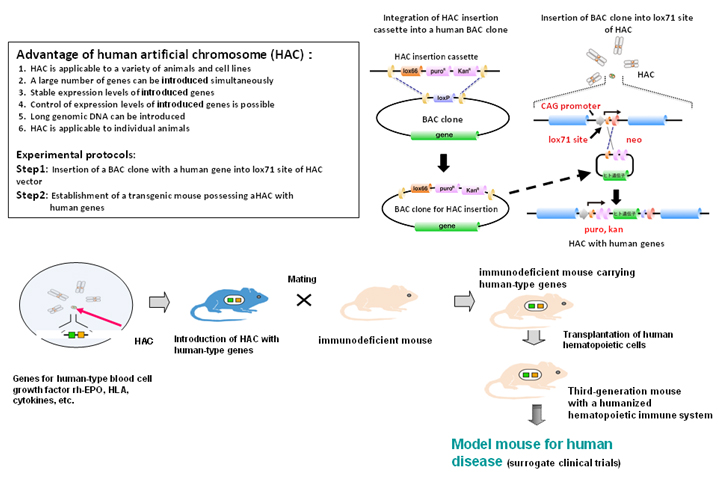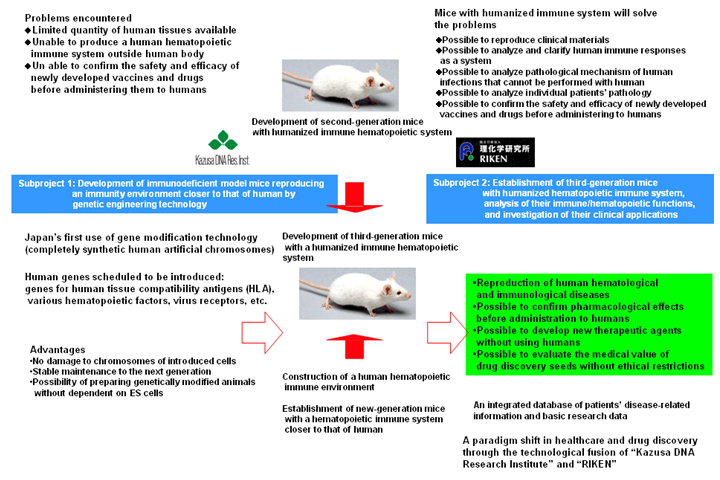
Research Project 3: Development and application of next-generation model mice for human diseases
Subproject 1: Development of immunodeficient model mice reproducing an immunity environment closer to that of human by genetic engineering technology

We have already developed "second generation" model mice with a humanized hematopoietic immune system by transplanting human hematopoietic stem cells into newborn mice the immune function of which was impaired by genetic engineering technology. In these mice, the transplanted human hematopoietic stem cells grew and regenerated the human hematopoietic immune system to some extent, though regeneration of the human hematopoietic immune system was not to the complete extent.
In this subproject, we will develop “third-generation mice” with a humanized hematopoietic immune system harboring human immunocytes and a human immune environment by introducing HLA, other human hematopoietic factors, and cytokine genes. With an immune environment closer to that of human, third-generation mice are expected to serveas human disease models with higher therapeutic applicability. For this purpose, we will utilize not only the conventional technologies but also those to produce a completely synthetic human artificial chromosome (HAC) developed at “Kazusa DNA Research Institute” and “Chromo Research Inc”. Advancement of the HAC technology will have the possibility to bring forth safer gene therapy in the future. We will also promote R&D to make more general use of the HAC technology.
Subproject 2: Establishment of third-generation mice with humanized hematopoietic immune system, analysis of their immune/hematopoietic functions, and investigation of their clinical applications

In this subproject, we will produce animal models for individual disease using the prepared humanized mice. For example, introduction of human virus receptors into the humanized mice might be useful for producing an animal model susceptible to diseases caused by viruses infecting only humans.Third-generation mice with a humanized hematopoietic immune system along with various disease model mice are expected to clarify various unexplored functions of the human immune system, factors necessary for the development of human stems cells into various immunocytes, and various pathological mechanisms, without having ethical restrictions that are usually applied to clinical research in humans. These mice may dramatically change the paradigm of the development of new therapeutic methods and drug discovery, by making the procedure safer and more efficient. We will make every effort to establish new model mice to support new research in medicine and drug discovery.